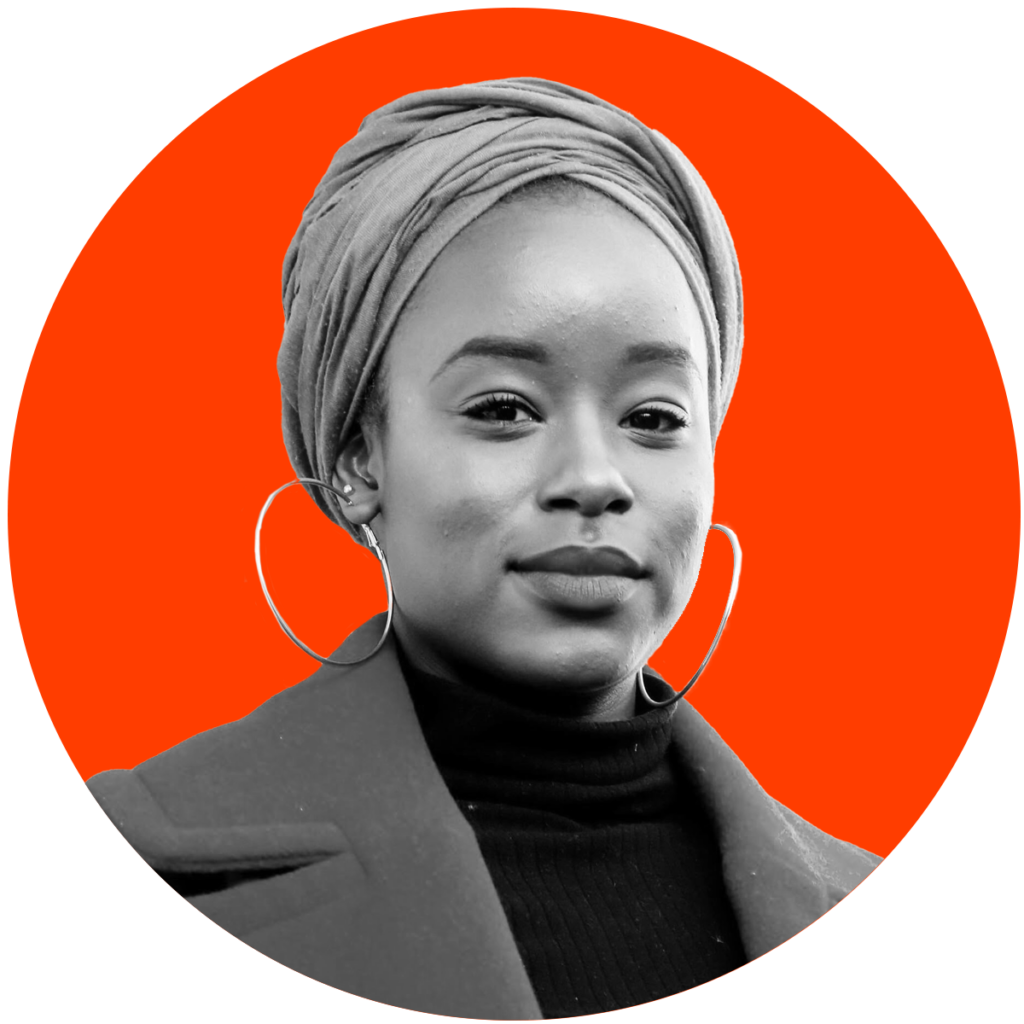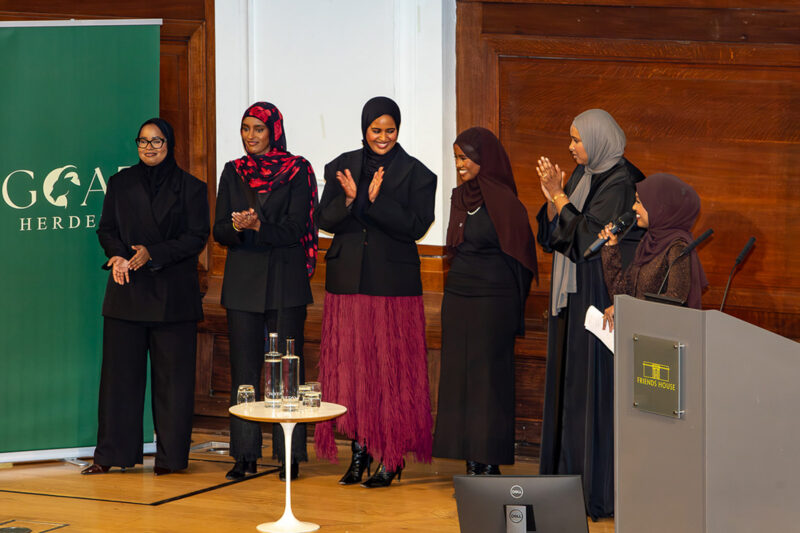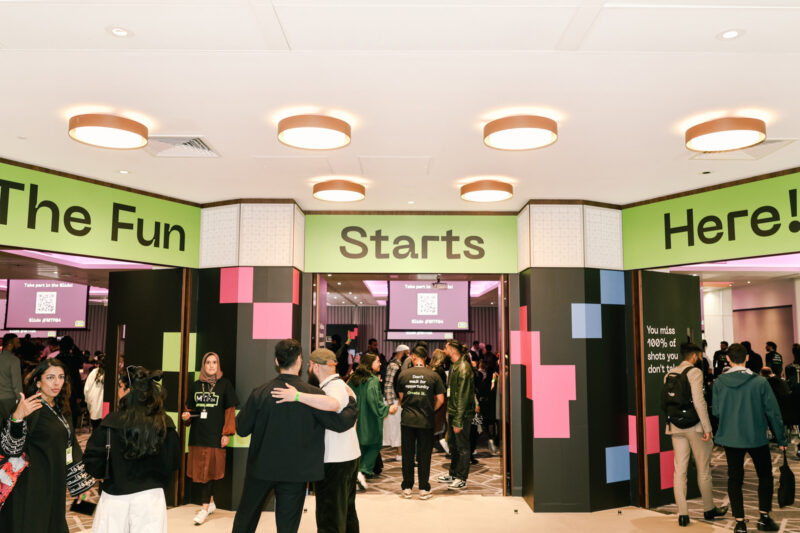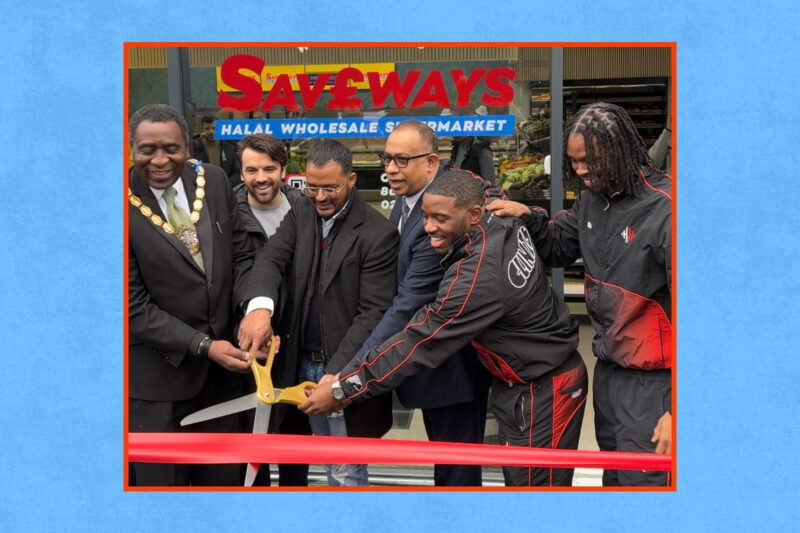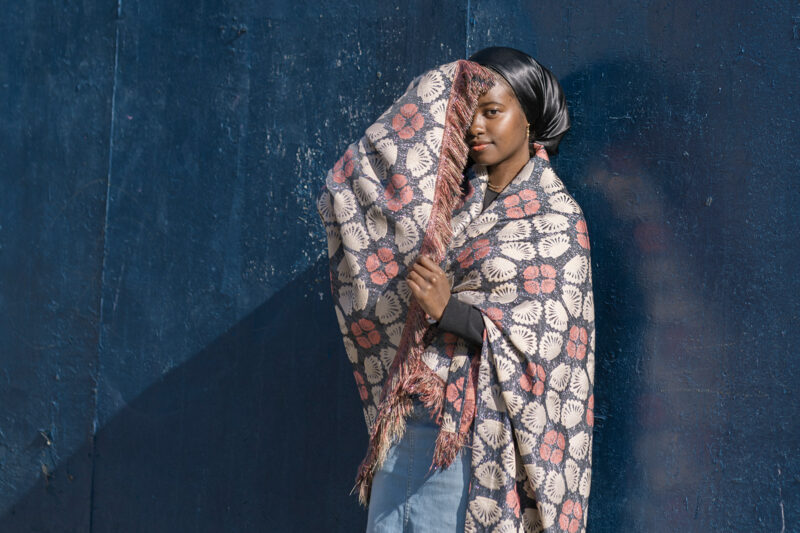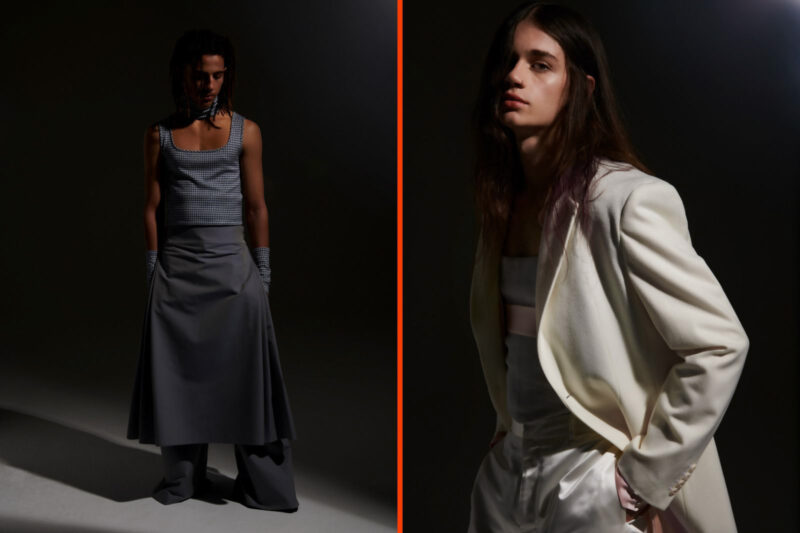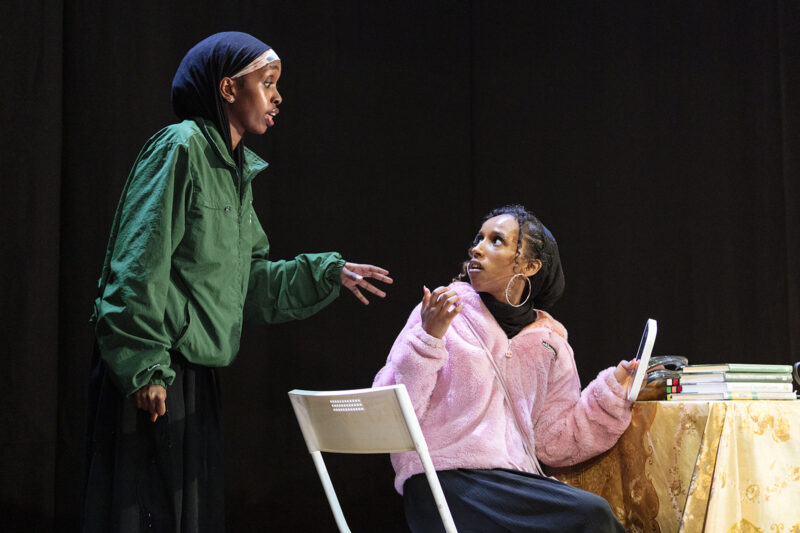
Sara Assad-Mannings Q&A: ‘With Bunhead Bakery, I’ve been able to explore my culture on my own terms’
London-based baker Sara Assad-Mannings has been cooking and baking Palestinian food since the age of 11. Photo courtesy of Bunhead Bakery
The British-Palestinian baker on what it means to be self-taught, and to love Levantine food cultures
Since she was a child, Sara Assad-Mannings wanted to run her own cafe or bakery. Now, aged 30, she’s achieved her childhood dream, in partnership with her best friend.
In 2020, during the Covid-19 lockdown, she began a home catering business under the moniker Bunhead Bakery. Inspired by her Palestinian roots, she made buns filled with flavours and spices such as za’atar and Aleppo pepper, and sold them online, delivering to customers from Greenwich to Twickenham, and running market stalls across south London.
In May, Assad-Mannings went from baking in her one-bedroom flat to launching a standalone shop in Herne Hill in partnership with her best friend and business partner Georgia Wickremeratne. Now, her buns sell out daily. Bestsellers include rose and cardamom; a savoury bun with za’atar, feta, and chilli; and another made with tahini and grape molasses.
She spoke with Hyphen about how Palestinian food and identity have shaped her business.
This interview has been edited for length and clarity.
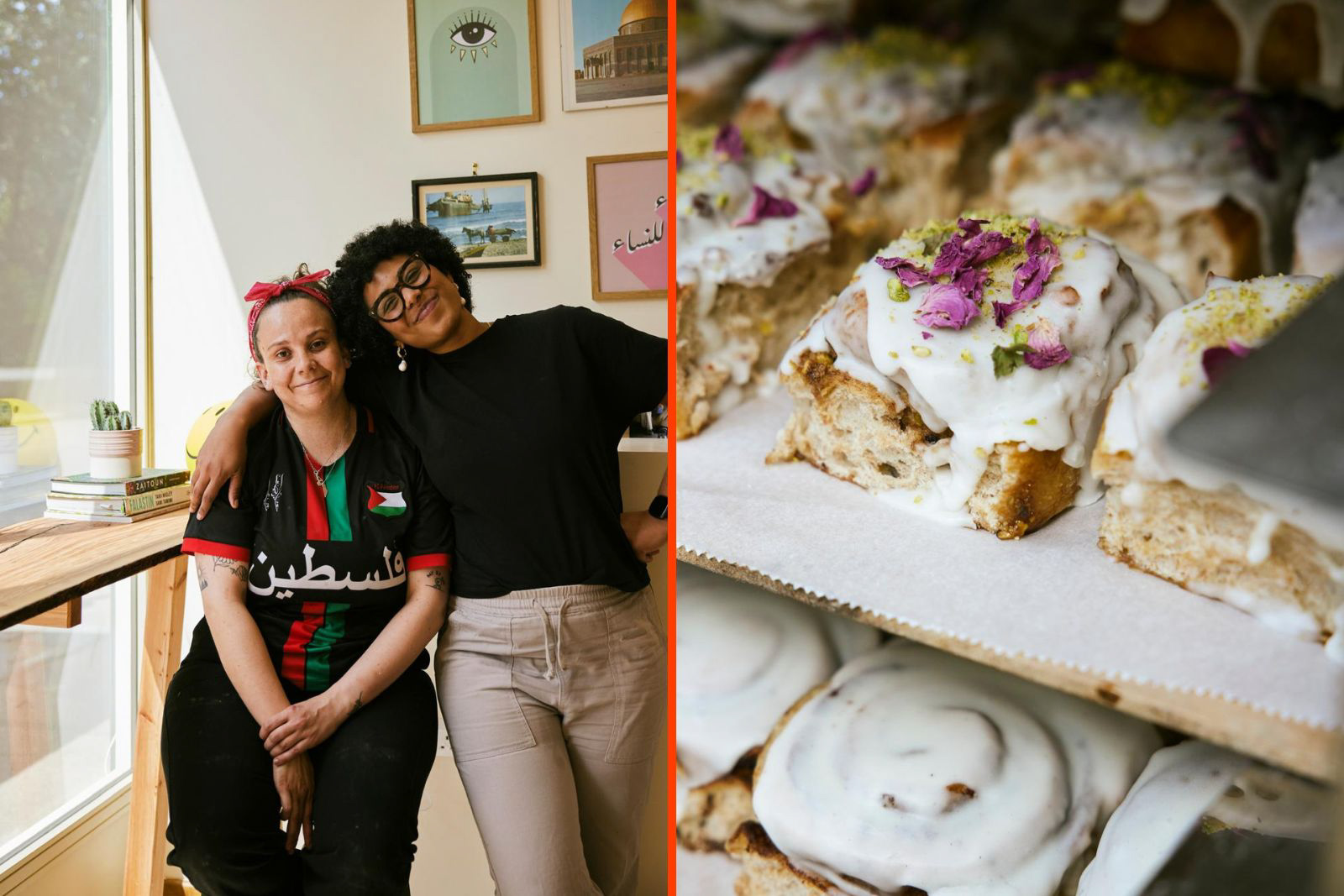
How has starting Bunhead Bakery influenced your relationship with your culture?
I never hid that I was Palestinian. My mum is Palestinian and my dad is British, but he has lived in Gaza and the West Bank. That’s where my parents met. They both drilled into me how important my heritage and history was. Growing up, I visited Palestine regularly. I certainly wasn’t as proud growing up because I didn’t want to be different as a teenager. But with Bunhead, I’ve been able to explore my culture on my own terms and have more open conversations with my family about it all.
Where did your love of cooking and baking come from?
I was around 11 years old when I started cooking at home to help out while my dad was studying, and it would just be me and my stepmum at home in the evenings. My dad would pay me £5 every two weeks to bake muffins for his meetings. I vividly remember being at my mum’s on the weekends, and rolling vine leaves and stuffing courgettes. It’s always been a part of my every day and it’s my biggest expression of love. I’m not professionally trained and I taught myself how to make the buns, but it’s in my blood. I don’t know what else I would do.
How has the war in Gaza affected your business?
It’s been a very confusing and painful experience. I’ve had a few people tell me it’s such a perfect time to open a Palestinian business, with all the attention on Palestine right now. But that’s a messed up thing to say, especially to a Palestinian person. We also launched our fundraising collection for Gaza and the West Bank in May. We must be giving back to the community at the same time.
A lot of people want to support and show their solidarity and it’s been amazing to see the number of Palestinians that have come and said thank you for what we’re doing. Growing up, I didn’t see anywhere that was proud to be a Palestinian business, so I was very intentional about making sure all our customers knew we were a Palestinian-owned bakery. I just wanted to provide a space that I didn’t have growing up where you can be proud of yourself.
How has seeing the shop come to life helped you cope with witnessing the terrible events in Gaza over the last nine months?
I’ve been so taken aback by the community that has been built around us. I’ve poured my heart and soul into Bunhead, and I’ve received nothing but love back. Since October, I have also connected with so many Palestinians, which has meant a lot to me as I didn’t have many Palestinian friends growing up. It’s allowed me to be much more rooted in my identity. People have sought me out and we’ve had healing conversations through that.
What are your memories of visiting Palestine?
Some of my favourite memories as a child are swimming in the Sea of Galilee, and visiting Jericho and the Dead Sea. I also have vivid memories of standing in front of the TV with my cousin, rapping and dancing to Eminem. We’d have big family meals where we’d all sit around and eat these massive trays of maqluba and stuffed courgettes. We’d eat the Arab way, which was eating by hand — I loved that.
I also have some bad memories. Every time I’ve travelled on my own, I’ve had my passport taken away and I’ve been interrogated at the airport. Travelling back when I was 19, I was strip-searched. There’s good and there’s bad. I was last there in 2019 and when I get the opportunity to go again, it will be very special and meaningful because my relationship with Palestine has deepened so much since then.
What do you want people to know about Palestinian culture?
I want people to know just how diverse our culture is. The Palestinian population is spread out across the world, so there are so many different expressions of our identity and culture. So much of the presentation we have of Palestinians or Arab culture is so traditional, but we are complex. We’re modern. We have different interests. So, it’s nice to be able to present Bunhead as a Palestinian business outside of the confinements of tradition.
 Newsletter
Newsletter

